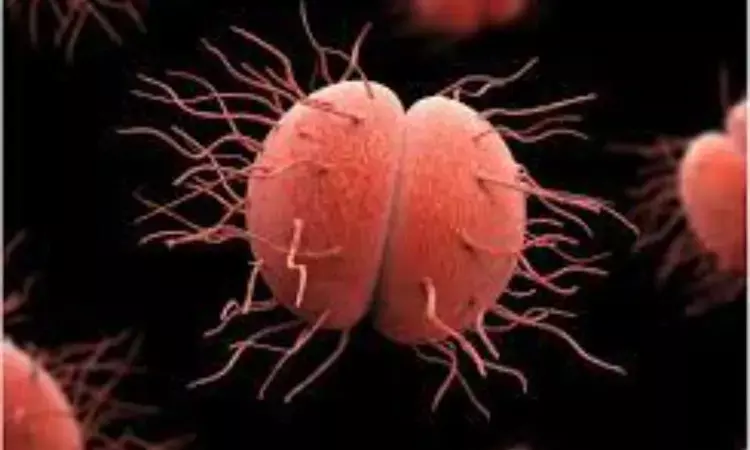- Home
- Medical news & Guidelines
- Anesthesiology
- Cardiology and CTVS
- Critical Care
- Dentistry
- Dermatology
- Diabetes and Endocrinology
- ENT
- Gastroenterology
- Medicine
- Nephrology
- Neurology
- Obstretics-Gynaecology
- Oncology
- Ophthalmology
- Orthopaedics
- Pediatrics-Neonatology
- Psychiatry
- Pulmonology
- Radiology
- Surgery
- Urology
- Laboratory Medicine
- Diet
- Nursing
- Paramedical
- Physiotherapy
- Health news
- Fact Check
- Bone Health Fact Check
- Brain Health Fact Check
- Cancer Related Fact Check
- Child Care Fact Check
- Dental and oral health fact check
- Diabetes and metabolic health fact check
- Diet and Nutrition Fact Check
- Eye and ENT Care Fact Check
- Fitness fact check
- Gut health fact check
- Heart health fact check
- Kidney health fact check
- Medical education fact check
- Men's health fact check
- Respiratory fact check
- Skin and hair care fact check
- Vaccine and Immunization fact check
- Women's health fact check
- AYUSH
- State News
- Andaman and Nicobar Islands
- Andhra Pradesh
- Arunachal Pradesh
- Assam
- Bihar
- Chandigarh
- Chattisgarh
- Dadra and Nagar Haveli
- Daman and Diu
- Delhi
- Goa
- Gujarat
- Haryana
- Himachal Pradesh
- Jammu & Kashmir
- Jharkhand
- Karnataka
- Kerala
- Ladakh
- Lakshadweep
- Madhya Pradesh
- Maharashtra
- Manipur
- Meghalaya
- Mizoram
- Nagaland
- Odisha
- Puducherry
- Punjab
- Rajasthan
- Sikkim
- Tamil Nadu
- Telangana
- Tripura
- Uttar Pradesh
- Uttrakhand
- West Bengal
- Medical Education
- Industry
Disseminated infection 'infrequent but serious' complication of gonorrhoea

Disseminated infection is an 'infrequent but serious complication of gonorrhoea, according to a recent study published in the Clinical Infectious Diseases.
Gonorrhoea is a sexually transmitted infection (STI). It used to be known as 'the clap'. Gonorrhoea can be easily treated and cured with antibiotics. However, if it isn't treated, gonorrhoea can cause infertility (inability to have children) and other health conditions.
Disseminated gonococcal infections (DGI) are thought to be uncommon; surveillance is limited and case reports are analyzed retrospectively or in case clusters. We describe the population-level burden of culture-confirmed Disseminated gonococcal infections (DGI) through the Active Bacterial Core surveillance (ABCs) system.
During 2015–2016, retrospective surveillance was conducted among residents in two ABCs areas and prospectively in three ABCs areas during 2017–2019. A DGI case was defined as isolation of Neisseria gonorrhoeae (Ng) from a normally sterile site. A case report form was completed for each case and antimicrobial susceptibility testing (AST) was performed on available isolates.
The Results of the study are:
During 2015–2019, 77 DGI cases were identified (~a rate of 0.13 cases per 100,000 population) and accounted for 0.06% of all reported gonorrhoea cases in the three surveillance areas. Most Disseminated gonococcal infections (DGI) cases were male (64%), non-Hispanic Black (68%), and ranged from 16–67 years; blood (55%) and joint (40%) were the most common sterile sites. Among 29 isolates with antimicrobial susceptibility testing (AST) results during 2017–2019, all were susceptible to ceftriaxone.
Thus, the researchers concluded that disseminated gonococcal infections (DGI) is an infrequent complication of Neisseria gonorrhoeae (Ng); since Neisseria gonorrhoeae (Ng) can quickly develop antimicrobial resistance, continued Disseminated gonococcal infections (DGI) surveillance, including monitoring trends in antimicrobial susceptibility, could help inform Disseminated gonococcal infections (DGI) treatment recommendations.
Reference:
Surveillance for Disseminated Gonococcal Infections, Active Bacterial Core surveillance (ABCs) – the United States, 2015–2019 by Emily J Weston et al. published in the Clinical Infectious Diseases.
https://academic.oup.com/cid/advance-article/doi/10.1093/cid/ciac052/6516834
Dr. Shravani Dali has completed her BDS from Pravara institute of medical sciences, loni. Following which she extensively worked in the healthcare sector for 2+ years. She has been actively involved in writing blogs in field of health and wellness. Currently she is pursuing her Masters of public health-health administration from Tata institute of social sciences. She can be contacted at editorial@medicaldialogues.in.
Dr Kamal Kant Kohli-MBBS, DTCD- a chest specialist with more than 30 years of practice and a flair for writing clinical articles, Dr Kamal Kant Kohli joined Medical Dialogues as a Chief Editor of Medical News. Besides writing articles, as an editor, he proofreads and verifies all the medical content published on Medical Dialogues including those coming from journals, studies,medical conferences,guidelines etc. Email: drkohli@medicaldialogues.in. Contact no. 011-43720751


